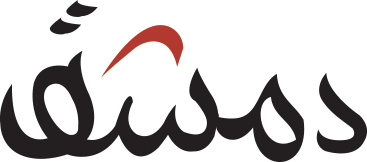Youssef Waqas
Scientists and thinkers have not been mistaken for years in pointing to the issues that affect our lives and environment, and they have long warned of an impending global catastrophe. With the emergence of the coronavirus pandemic, these issues have taken on a tangible and urgent aspect, particularly focusing on our problematic relationship with the environment, which remains unresolved. However, amidst all this, something has been lacking in these calls and warnings: the solidarity of these voices with each other to be more effective, or at least to have a say in this arena.
Initially, when the dimensions of this pandemic crystallized and it transformed into a global outbreak, many wondered whether things would worsen. Some even dared to consider it a simple and transient matter, allowing for the continued destruction of tropical rainforests and the emission of carbon and sulfur oxides, along with other harmful gases to humans and the Earth. This behavior immediately reminds us of the parable of “the blind,” a symbolic Gospel story with moral significance, depicted by the Dutch painter Pieter Bruegel the Elder in a painting of the same name in 1568, currently housed in the National Museum of Capodimonte in Naples. Through this work, Bruegel attempted to illustrate the confusion surrounding human existence—a confusion that is not infrequently associated with profound folly, both in intentions and thought.
In this context, the media, along with high-ranking politicians, who do not know whom to attribute this colossal disaster to, borrowed the metaphor of “war,” without specifying the enemy to be fought, as the coronavirus cannot be seen with the naked eye. People have always been accustomed to traditional battles where two specified armies meet and fiercely fight in the name of religion, ideology, or national interests. Even in the most ambiguous cases, like the war on terror, despite the lack of clarity regarding the counterpart, there were names—or rather names—with images showing them with flesh, blood, and weapons. However, in this war, the enemy can only be seen under a microscope, and moreover, it does not tend toward racial or religious discrimination; it affects everyone indiscriminately, regardless of creed or national affiliation.
Thus, with the coronavirus, the discourse has changed radically, as the enemy here not only threatens our lives, forcing everyone into an unprecedented collective isolation in human history, but it has also muddled our beliefs, especially the assumption of our absolute sovereignty over the Earth and, above all, what is called human solidarity. Suddenly, we witnessed incidents of piracy between countries that until yesterday prided themselves on close treaties, governments were caught off guard, and people began to quarrel over a roll of toilet paper. Nations, in the face of this rampant selfishness, began to act on their own; even members of the European Union could not find common ground among themselves, exchanging accusations and retreating into themselves.
Now, everyone acknowledges that we are in the same boat, and that without cooperation, we risk sinking, one after another. Therefore, we must unite and give greater momentum to our actions and voices. But will this be easy? In reality, it is premature to claim optimism or pessimism. The situation remains unclear, and we somewhat know the perspective that awaits us from politicians, those in power, which, without a doubt, involves sacrificing humanity at the altar of the economy. After the discovery of America, the Spanish conquerors triumphed over the indigenous people thanks to viruses, and I do not rule out the possibility of new winners in the ongoing battle over the coronavirus, who could be China, the Amazon, or Netflix. These three horsemen, reminiscent of the Book of Revelation that heralds the end of the world, seem to be the ones who will take charge, but who knows at what cost?
The trend, particularly in the last three decades, has been to create a human mass constantly engaged in work and consumption, leaving little room for culture. This is how coarse and semi-educated governments and rulers formed, with only a few rare individuals holding sound values. For this reason, we have recently witnessed reactions stemming solely from ignorance and a reluctance to understand and explain what is happening to citizens. It has now become clear that we are unable to keep pace with the rapid progress, and now we do not know how to stop or at least how to act in the face of such situations. Countries like the United States have more Nobel Prize winners than all other countries combined, yet they are the most hostile towards science. This hostility is not only related to science; as Jared Diamond, one of the most popular scientists in the world, states, it pertains to a genuine anti-thought trajectory.
Diamond states, “The origin of this anti-thought attitude, which has become routine, can be explained only through hypotheses. One is related to the birth of the United States itself, founded by European immigrants in search of religious freedom. There were no large churches as in Europe, but countless small dissident communities. In the following centuries, we had more fundamentalist religious movements than any other country in the world: Mormons, Seventh-Day Adventists, Jehovah’s Witnesses, etc. The result is an anti-thought stance, often associated with religious primitivism.” Supporting this view, the arms depots in New Orleans ran out in just a few days. It is evident that you cannot fight the virus with a Smith & Wesson, but after centuries of enlightenment, people suddenly returned to thinking in the same primitive way. Meanwhile, Congress chose to free unemployment benefits to increase societal division, urging employers to lay off employees without guaranteeing re-employment after the crisis. Perhaps this is the clearest example of neoliberal policies that have endangered the fates of peoples for decades, leading the world into continuous wars for their own interests, without regard for the lives of millions suffering from the catastrophic consequences of this immoral policy.
In this context, philosopher, cultural anthropologist, psychoanalyst, and academic Umberto Galimberti wonders in an article published on the ACLI (Italian Christian Workers’ Association) website: “If this is the framework, does it imply an inability to evolve as humans? Christianity spread optimism in the West when it taught us to think in these terms: the past is bad, the present is redemption, and the future is salvation. This formula in considering time was also adopted by science, which likewise states that the past is ignorance, the present is inquiry, and the future is progress.
Even Karl Marx, a Christian as well, preached that the past is social injustice, the present will explode the contradictions of capitalism, and the future will achieve justice on Earth. Meanwhile, Sigmund Freud, who also authored a book against religion, considers that trauma and neurosis are formed in the past, that the present is enchanting, and that the future heals. This is not the case. The future is not a time of salvation; it is not waiting or hope. The future is a time like any other. There will not be divine providence coming to us to solve our stagnation. Let us hope, let us wish, let us desire: all these are negative actions. We stand idly by, and the future will help us: this is not the case.”
On the other hand, this pandemic has made us understand that calamities arise from nothing other than our behavior toward ourselves and toward the environment in which we live. We now know that there is a link between the pandemic and our relationship with the environment, but that does not mean we will head in the most favorable direction. The paths are many, but we must choose the right one. After World War II, with the Marshall Plan, the United States provided the opportunity and the tool to eliminate other diseases that were no less dangerous than the coronavirus; it is the “evil genius” of Europe, the source of two world wars and three totalitarian ideologies within twenty-five years.
But there was another dimension of the plan that was largely overlooked: communication, namely the unprecedented propaganda during peacetime, neither before nor after, such as using multimedia operations or cinema, exhibitions, posters, or radio programs, which reached every factory, office, school, or home, with messages appropriate for each level of society.
Along the same lines, many individuals, including Hans Ulrich Obrist, the artistic curator, critic, and art historian (Zurich 1968), dedicate time and energy to significant cultural initiatives, consisting of important projects based on the need to exchange ideas, intentions, and strategies with a considerably large intellectual community, and to respond to the many bleak scenarios that the art and culture world may suffer from. Obrist takes the Public Works of Art Project (PWAP) as a model, a federal program promoted by the United States in 1933, and the Works Progress Administration (WPA) established by Roosevelt in 1935. The initiative desired by the state aimed to foster art, encourage the emergence of young talents, increase public awareness of painting, and promote a greater relationship between artists and society.
If only one of the technocratic programs announced these days could be clearly launched, led by charismatic figures, perhaps the European Union could wrest a political initiative from the hands of populists and confine the “evil genius” of Europe to its cage—represented by the anti-EU parties—precisely as it was identified by the Americans who launched the Marshall Plan.
The coronavirus is entirely novel, meaning that our existence depends on unpredictable evolutionary “jumps,” which could change human history after delivering a knockout blow to globalization.
Now they invite us to stay home. But that will not be enough. We must interact with isolation, and above all, we must stand on our feet, which will not happen without a strong movement that restores thought to its priority and proper standing.
A writer from Syria residing in Italy.
Let me know if you need any further assistance!











